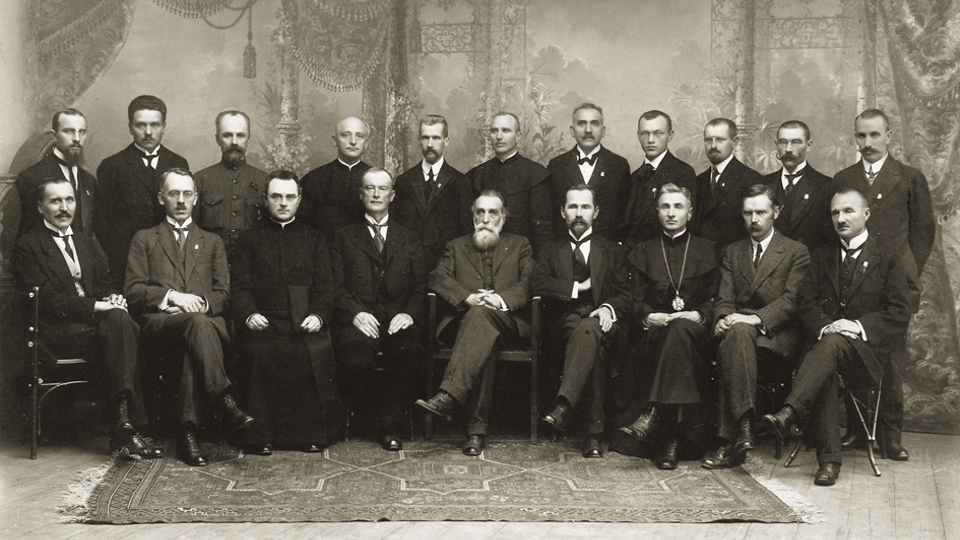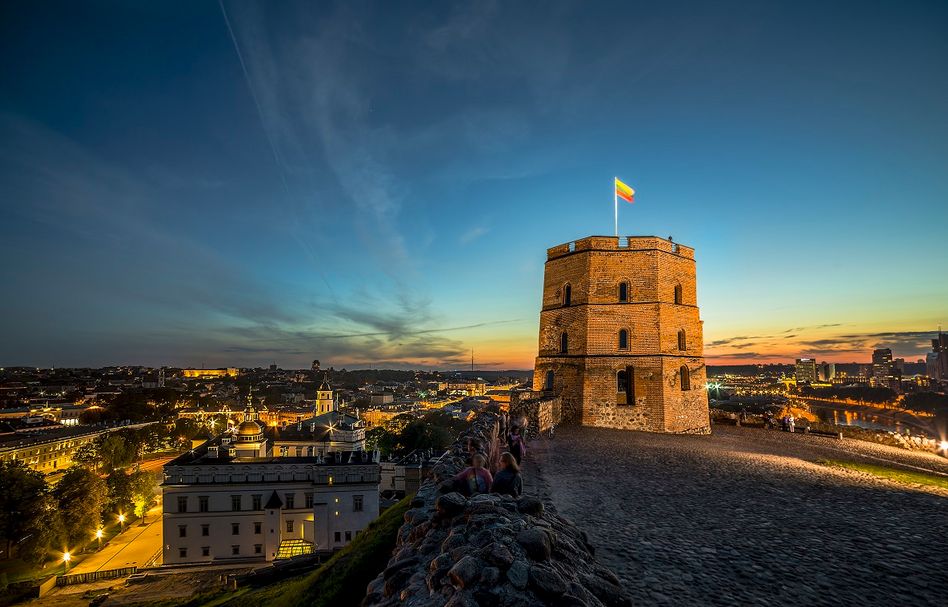The first step towards independence
German policy in Eastern Europe during WWI could best be described as haphazard. In autumn 1917, as Russia underwent a social and political crisis, the Germans decided to subvert the principle of self-determination in Eastern Europe and to set up satellite states. From September 18 to September 22, 1917 Lithuanian politicians at the Vilnius Conference decided to set up the Council of Lithuania and declined to show loyalty to Germany. The occupying Germans forbid to publish the Council's Act of Independence of Lithuania and opposed its call for a constituent assembly to be elected. 
Act of December 11
After the Bolshevik revolution in Russia, which meant that peace talks would soon start, Germany pressured the Council of Lithuania to declare its independence from Russia on terms dictated by the Germans. Lithuania was forced to accept and declared its independence but in reality it would have become a German protectorate. Furthermore, Lithuania would have had to become a monarchy (a nod to its medieval status as a Grand Duchy) instead of a democratic republic, the form of government preferred by the majority of the Council of Lithuania
Against the German dictate
Antanas Smetona (1874-1944)
World War I marked the beginning of Antanas Smetona's career. An important activist during the Lithuanian national awakening, he would later became the authoritarian leader of Lithuania. In 1893 he started studying at the Jelgava Gymnasium, one of the most important Lithuanian national centers. He was expelled in 1896 for refusing to say prayers in Russian. Later Smetona was expelled from the University of St. Petersburg, and underwent several arrests. He also participated in publishing and spreading books in Latin script, which was banned in Lithuania. After the German occupation, he continued to campaign for Lithuania's independence, becoming the first chairman of the Council of Lithuania. He was one of the 20 members to sign the February 16 Act of Independence. In 1919 he was elected the first president of Lithuania. After the 1926 coup d'état, he was president up until the occupation of Lithuania in 1940.
Act of February 16
After lengthy talks and disagreements the Council of Lithuania, on February 16, 1918 adopted a new text for the declaration of independence of Lithuania. It was based on the Act of January 8 and reinstated the independence of Lithuania based on the right of self-determination and the decisions of the Vilnius Conference.
Two days later it was published in the German press, and the parties of the Reichstag were introduced to the text as well. However, similarly to the February 24 Estonian Declaration of Independence, it only granted independence 'on paper'. Germany was not interested in setting up truly independent countries.
After the Brest-Litovsk treaty was concluded, Germany ignored the February 16 declaration and considered setting up a monarchy of Lithuania with a German ruler, as per the Act of December 11.
Like Latvia, Estonia and Lithuania set up national governments only in November 1918. Formally speaking, Lithuania was the first Baltic state to become independent. Its historic situation was better, as Germany was interested in cooperating with Lithuanian nationalist politicians, and Lithuania had no strong Baltic-German minority to speak of, one able to resist attempts of self-determination by the locals.





























